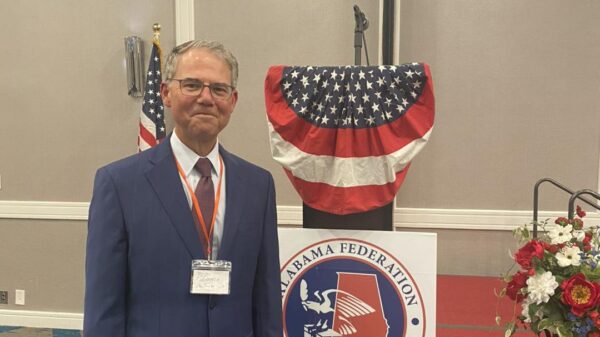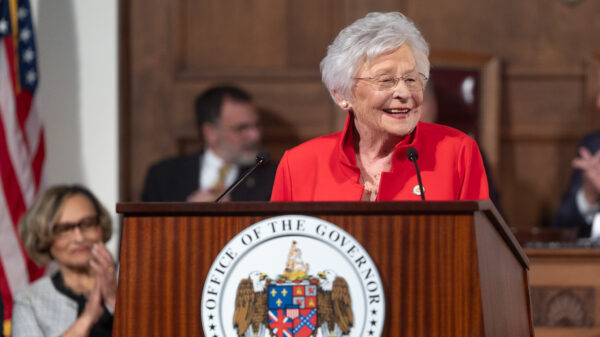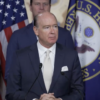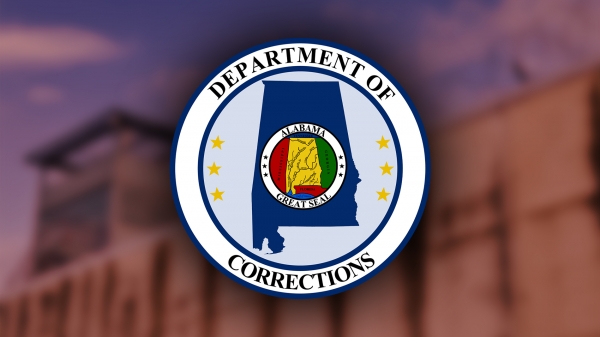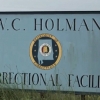It’s a billion dollars.
For about an hour last week, I found myself just repeating that sentence over and over as the video of the most recent Legislative Contract Review Committee meeting played on my laptop, and an attorney for the Alabama Department of Corrections inexplicably attempted to downplay lawmakers’ concern about the new handling of the new prison healthcare contract.
That contract was for $1.06 billion over four years.
And it had been handled like a contract for 1.06 dollars.
That is to say, it was handled with all the care and attention that one might expect from a government agency seeking about a dollar’s worth of services.
Everything about it was screwed up.
First off, the attorney tasked with explaining how YesCare, a relatively new company, won the bid despite not being anywhere close to the lowest bidder, actually used the phrase “inside information” while explaining how YesCare was apparently improperly provided info that other bidding companies didn’t receive.
According to ADOC attorney Mary-Coleman Roberts, ADOC first awarded the contract to YesCare in July, but was then forced to pull the award after receiving written allegations that YesCare received “inside information” that gave the company an unfair advantage in the bidding process. ADOC put the contract back up for bid, and after supplying all bidders with the same information, it this time awarded the contract to … YesCare. Again.
But wait, it gets worse. Much worse.
One of the biggest issues – which lawmakers and Roberts chose not to delve into during the public meeting – was that attorney Bill Lunsford was seated last June on the YesCare Board of Advisors. That board, according to the company website, was tasked with advising the CEO and executive staff on all matters.
Small problem: Lunsford is the lead attorney for ADOC in a lawsuit filed by the U.S. Department of Justice. Part of that lawsuit involves healthcare within Alabama’s prisons.
Not only that, Lunsford has also been made a deputy attorney general by Alabama Attorney General Steve Marshall. That’s not uncommon in cases where outside legal counsel is brought in to handle complicated, long-term issues.
What is uncommon, however, is for a DAG to then be seated on a board of advisors for a company competing for a BILLION DOLLAR contract with the state entity that the DAG is representing.
Actually, let me rephrase. That’s not “uncommon.”
It’s unheard of.
Roberts, though, said ADOC investigated the matter and determined that Lunsford had no influence on the decision.
Which … maybe that’s true.
Maybe it’s just a coincidence that an Alabama attorney was seated on the advisory board of a Tennessee company just weeks before that company landed a billion dollar contract with the state entity for which the attorney is also contracted.
I guess we’ll never know.
But what we do know is that this isn’t the end of the story. It gets worse … somehow.
Because that company we’ve just agreed to give more than a billion dollars? Yeah, well, at this time a year ago, YesCare was celebrating its first month of existence.
Formed in Texas, with an operational base in Brentwood, Tenn., YesCare was essentially created as a new host body for Corizon’s failing innards – nothing more than a creative business trick, made possible by the corporate corruption-friendly state of Texas, meant to make it easier for failing corporations to unload bad debt and ensure that the failed executives of that failing company never have to take responsibility for their failures.
Corizon had prison healthcare contracts all over the U.S., and many of them were problematic. Cost overruns and lawsuits over subpar care were eating up profits. And a number of states and counties had dumped Corizon over poor performance. The company was almost assuredly looking at bankruptcy.
In stepped Tirschwell as Corizon’s new CEO. In early 2022, she crafted a plan. YesCare was formed and set to the side. Then, taking advantage of those sweet, sweet Texas business laws, Corizon performed a merger which was actually a split, leaving two companies: the original Corizon and newly-formed CHS TX.
CHS TX took all of Corizon’s good stuff – the employees, the good contracts and the executives. Corizon retained most of the bad – the debt, lawsuits and not-so-great contracts.
A few weeks later, YesCare, whose CEO is also Tirschwell, came along and snapped up CHS TX.
And tah-dah: All of a sudden, there’s a brand new company free and clear of all that nasty debt and ready to do business using the same model in the same marketplace.
In the meantime, Corizon allegedly just stopped paying its bills, leaving dozens of third-party providers unpaid and facing lawsuits. Then, last week, as APR reported, Corizon filed for bankruptcy.
And all of that corporate legal work allowed YesCare’s new CEO Jeffrey Sholey to say, with a straight face, that he wouldn’t comment on the Corizon bankruptcy because Corizon was a “completely separate” company.
Which is technically true, I guess, under these insane business laws. But, come on.
Alabama taxpayers are about to fork over more than a billion dollars to a company that only exists because a Frank Abagnale scam is somehow legal for businesses in Texas; a company that spun off from a company that just allegedly stiffed a bunch of service providers because this sort of prison healthcare services contract isn’t manageable today; and all of that only after the bidding process had to be restarted because this company received “inside information” during the bid process and had an Alabama deputy AG on its advisory board.
Something stinks. Bigly.
And with a billion-dollar contract at play, that can’t be the case. You can’t have this many problems, this many red flags.
Because, I’ll say again: It’s a billion dollars.



